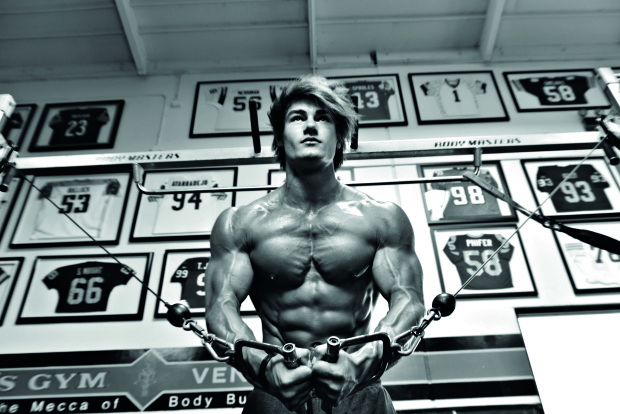

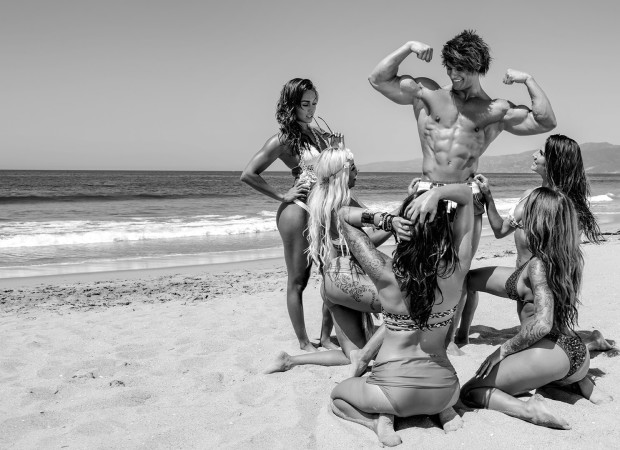
Aesthetics superstar and social media phenomenon Jeff Seid moves to Los Angeles to begin the next chapter of his career.
Whoever said, “Youth is wasted on the young” never met Jeff Seid. The just-turned-21-year-old Seid, the youngest athlete to ever win an IFBB pro card, has been blessed with good looks, 21st century social skills, and most importantly, the rare ability to recognize a moment and seize it with both hands. Nothing is being wasted here.
Born and raised in Seattle, Washington, Seid recently moved to Los Angeles to begin the next evolution of the Seid brand. Outgoing, good-looking, and unattached, the City of Angels seems to be a perfect fit for him. (“There are more hot girls than ugly girls in L.A.,” Seid says.) In fact there is something decidedly SoCal in the energy of Seid and his mission to spread the aesthetic lifestyle. It’s easy to imagine Joe Weider—the man who packaged and marketed the sun and sand zeitgeist of Muscle Beach and the California fitness scene—getting excited about Seid’s flowing Zane-esque lines and throwback ideas that fitness should be a celebration rather than an act of penance.
Seid hasn’t been a tourist in his first few weeks in Los Angeles. After finding a place to live and getting the prerequisite membership to Gold’s Gym in Venice, he went to work. The coming months will see the release of his e-book, a fitness app, new additions to his clothing line, and hopefully some appearances on television and feature films. Los Angeles is the city if you want to see your name in lights, and Seid is dead serious about his name.
“My name is my brand. I incorporate my name into my business in whatever I am doing,” he says. “I think what my name brings to the table is that aesthetic lifestyle— having fun and a social life but still working hard in the gym.”
Iron Man: Who is the crew with you on the cover?
Jeff Seid: Just buddies of mine. I hit them up told them to come down and do an Iron Man cover shoot. We had a good time.
IM: You only have friends who are ripped, huh?
JS: [Laughs] Not exactly. The photographer wanted fit people, so I hit up some of my good friends. It was a young crowd of kids having fun at the beach. I love the image. It’s different for a fitness magazine, but it’s revolutionary in a way.
IM: How long have you lived in Southern California?
JS: I moved to L.A. two months ago from Seattle. I like it down here. I signed up for Gold’s a couple weeks ago because it is frickin’ Gold’s, you know? It is awesome. The first time I walked in, I could feel the atmosphere of the whole place. It felt like I was at home.

IM: Do you get recognized often at Gold’s?
JS: Every time I walk in the first thing I do is take a pic with someone. It is crazy how quickly things have happened over the last couple of years. I’ll be walking down the road and people will come up to me and want to take pictures. I have the best job in the world. I can’t imagine life without it.
IM: Does the fame have a dark side? Does it ever get too intrusive?
JS: No, I haven’t reached that part yet. I don’t know if that’s ever going to happen. I would never complain about taking pictures. The fans make me who I am. I’m always going to give back and talk to them. There are moments when I’ll be working out mid-set and someone tries to have a conversation with me. I am like, “At least wait until I am done with the set!” I’m always nice to talk to, though. If you don’t like to talk to people, this is not the industry for you.
IM: When was the moment that your career really turned that corner?
JS: Honestly, it was since the beginning. I did my first YouTube video a month or two before I graduated high school, and things picked up fairly quickly. A month after I graduated, I flew down to Miami and did some photo shoots. I think my groundbreaking moment was probably a photo shoot I did in a Spartan outfit. I put those online and things went crazy. That was June 2012. Then I started doing national shows for physique and my YouTube really took off.
IM: Do you get recognized more often in Los Angeles than you did in Seattle?
JS: I’d say I get more recognition in Los Angeles. But the most recognition I get is internationally. I’m a lot more popular in other countries than the U.S. I was at FIBO [annual fitness trade show held in Cologne, Germany] in April and it was insane. I think Germany is one of my top three countries in terms of popularity. There was a whole ocean of people clawing at me.
The crazy thing is that the aesthetic guys, the people promoting the healthy aesthetic lifestyle like me, we had more people at our booth than top bodybuilders like Phil Heath or Ronnie Coleman. It was insane how many more people were at our booths. We had a huge line the whole time and they didn’t even have a line. They were getting all pissed off at us.
IM: Do you think having a bigger fan base than bodybuilders is about your looks or your social media outreach? Ronnie Coleman retired three years before Instagram was even invented.
JS: I think it’s a combination of looks and social media. I think the main thing is that the aesthetic lifestyle is so much more applicable to the general public. People look at us and we have fun, we’re healthy and we’re functional. You can achieve what we have naturally. I am not badmouthing bodybuilders. I think Ronnie Coleman is a legend. But bodybuilding is a full-time sport. You have to dedicate your life to it—eating 10,000 calories a day and training four hours a day. Achieving a physique like mine allows you to go out, have fun, and still have a social life.
IM: You’re like the first generation of a new breed of fitness celebrity. Who else do you see as part of that movement?
JS: It is a new breed in itself. I think Zyzz [Aziz Shavershian] started it all. Frank Zane was like the original pioneer of mainstream aesthetics. Also, guys like Jon Skywalker and Alon Gabbay promote it.
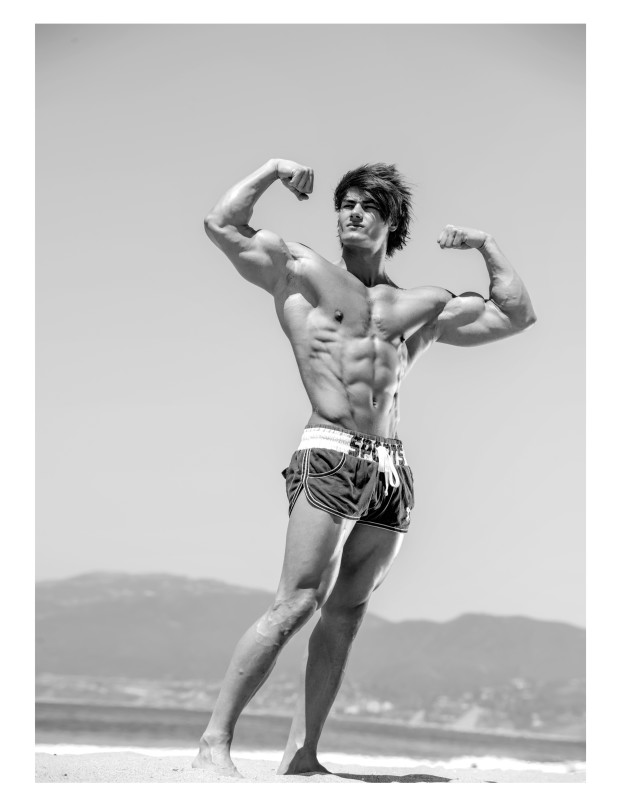
IM: When you pose, it seems like you channel Frank Zane.
JS: Yeah, Frank Zane was the pioneer. When he posed everything was on point, and the thing about his physique was that everything flowed. He wasn’t big and blocky. If he walked down the street, people would stare because they admired it. But if a big 300-pound bodybuilder walks down the road, people stare not because they admire it, but because it’s a freak show. That is why I have always liked aesthetics.
IM: Are you officially retired from competition?
JS: [Laughs nervously] I don’t want to announce retirement yet. At the moment I don’t have any plans to compete anymore. I’m doing acting classes here in Los Angeles. I want to break into the entertainment business, movies, commercials. There’s a lot more money in that. Competing is cool if you like it, but it can feel like a never-ending cycle of bullshit in a way.
IM: You placed13th at last year’s Mr. O. Was that disappointing?
JS: Yeah, that was disappointing, but I’m like the only guy onstage who does his own prep. I don’t have a coach or a nutritionist. I’m the youngest guy onstage also. I could have done my prep better and done a few other things to bring in a better shape. I think being the youngest one there and not having a coach worked against me.
IM: You clearly have bigger aspirations. Have physique competitions already served their purpose for you?
JS: I think men’s physique is awesome, but I use competing to get my name out there. And after getting my pro card and winning a pro show, I feel like there’s not that much more to do. There’s winning the Olympia, of course, but if I wanted to win the Olympia, I feel like I would have to hop on a bunch of steroids, add a lot more size, and dedicate my life to it.
IM: Is there a disconnect between what the fans like and what the judges want to see?
JS: I’ll be honest, I could put a lot more mass on when I step onstage. A lot of the guys winning the big shows have a lot more mass than me. That’s another factor against me. My physique is on the level of the competitors, but I need more size to win.
I think in social media, what happens is there are kids who see me post my life and they want to aspire to live the same lifestyle. I have gone to a couple auditions and they’ve all told me that if I want to make it big in acting I have to lose muscle. I tell them that muscle is what sets me apart. I can’t imagine life without it. But I can always lose a little size and get leaner and I won’t look as bulky.
IM: Do you enjoy acting?
JS: I love it. Back in Washington I used to do drama and theater. It is a passion of mine. I feel natural in front of the camera. Acting feels good. I want to learn the art behind it. I want to be a good actor. I don’t want to be one-dimensional. It is like anything, you have to practice hard if you want to make it big.
IM: Tell me about your athletic background.
JS: I did a bunch of sports: baseball, track, football, wrestling. When I was younger, my whole life revolved around sports. I was hoping sports would pay for my college, but my senior year I tore my ACL. I had a couple scholarship offers for football to play outside linebacker, but they didn’t pan out. That was when I found out about the fitness industry. It opened up a whole world for me.
IM: Do other men’s physique competitors have serious athletic backgrounds?
JS: I don’t think many of them do have a big athletic background. I’ve always believed that you need to be a functional athlete. It kills me when I see bodybuilders who can’t touch their toes or can’t run 100 meters without gassing out. What’s the point in looking like a beast if you can’t do anything? Even now, I run a couple miles every day and I do yoga in the morning.
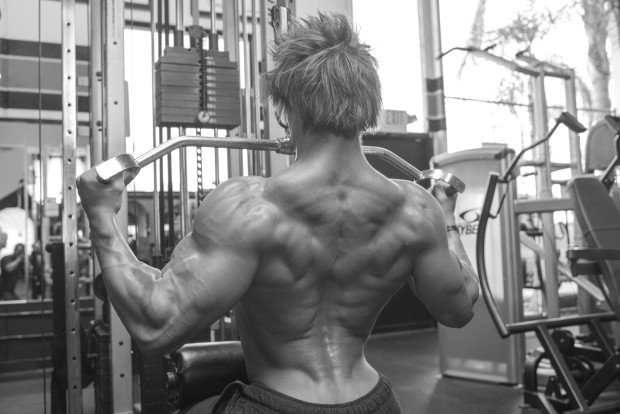
IM: Do you think that athleticism comes across in your physique?
JS: I think you can tell. You can see it in bodybuilders who are all stiff and blocky and walking around like monsters. You can tell when someone is athletic by how they move and how they flow. Running shapes your legs, shapes your quads, and makes you look more athletic. It definitely helps aesthetics.
IM: What other business endeavors do you have going on?
JS: I have a clothing company now called SeidWear. I’ve had it for about a year. It started out in Washington, and right now I have my dad and my sister helping me out with it. My whole thing is that my parents have supported me my whole life, and so I’m trying to give back and support them now. It’s a big thing of mine. I want to retire my mom and dad from working.
IM: That is a pretty serious goal for a guy who just turned 21.
JS: My dad is the one who got me into weightlifting. We started weight lifting together when I was 12. He bought workout books and we learned together. He went to every single wrestling practice with me. Every weekend he and I would travel the state going to tournaments. He was always there by my side supporting me. If it weren’t for his and my mom’s support over the years, I wouldn’t be where I am today. I couldn’t have asked for better parents.
IM: What else is happening in the Seid empire?
JS: I have a new e-book coming out that is a full guide to achieving aesthetics. It has a three-month workout and nutrition prepping techniques. I have a fitness app coming out called Fit Plan. It has a lot of high-quality professional videos. YouTube generates income and sponsors for me. I got my own supplement company, Seid Supplements. The clothing company is my biggest source of income, though. The supplements make pretty good money, but the clothing company has helped me out the most.
IM: What are your social media numbers like?
JS: I think Facebook is like 2.2 million. Instagram is probably around 800,000. YouTube is like 500,000 subscribers. I don’t really look at my numbers. I don’t think of it as a numbers game. It’s about how much you connect with your fans, about how genuine you are. Some people treat their social media like a business instead of a personal page, but when people start doing that it’s not as genuine. I know people who have a whole team post for them, but I think that is too obvious. And I like doing it—it’s fun.
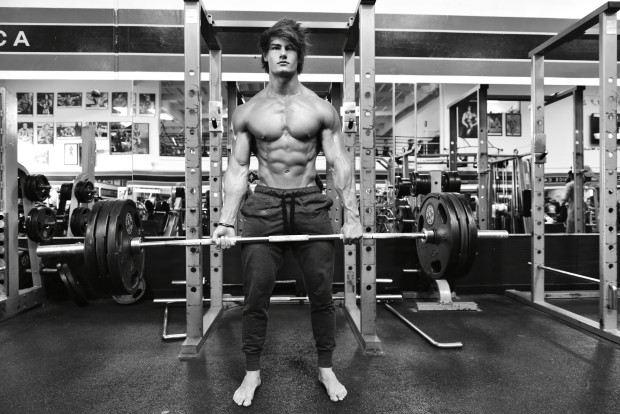
IM: Is your life busier than most people imagine?
JS: It’s a full-time job. I wake up, go for a run, do some yoga, and then I do e-mails. After that I get to my social media posts. Usually I’ll have a photo shoot. I’m lucky that I get to control my hours since I work for myself, but there’s a lot going on. I love it, though. It’s the best job in the world. It’s every kid’s dream come true.
By Mike Carlson






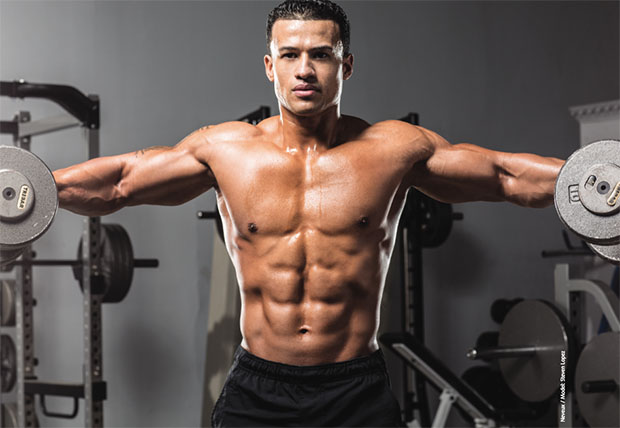





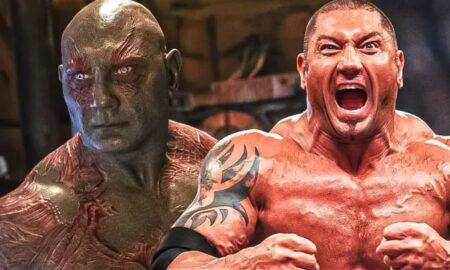
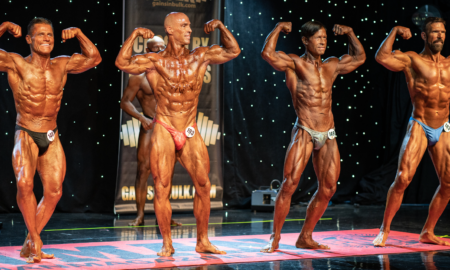
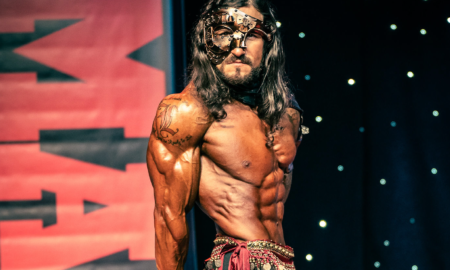
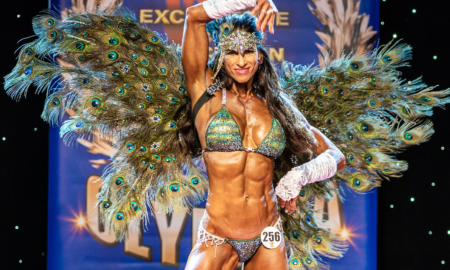
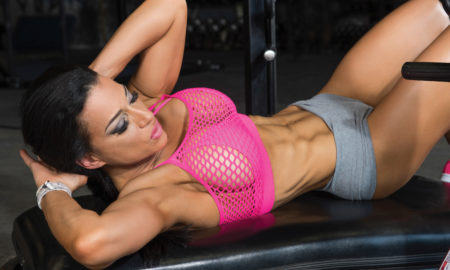
You must be logged in to post a comment Login